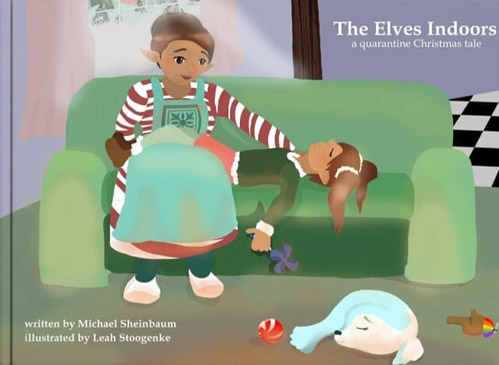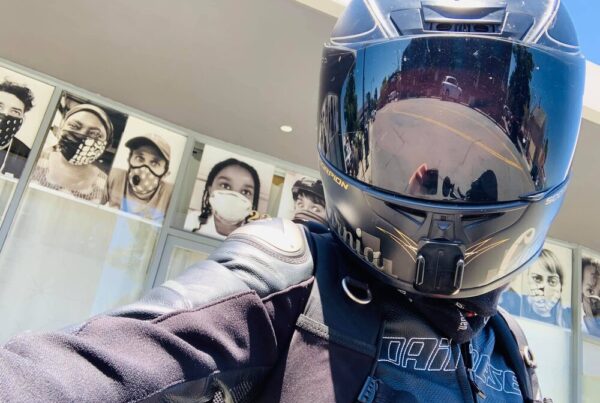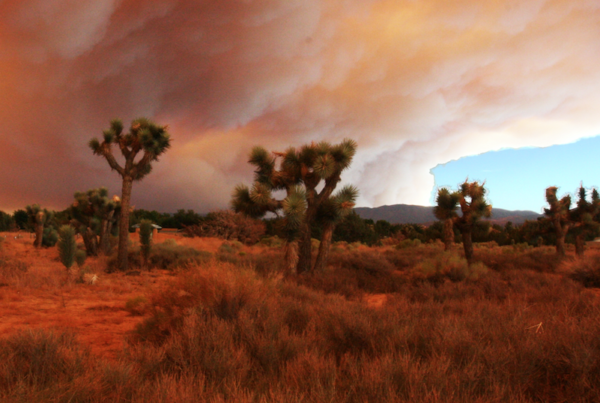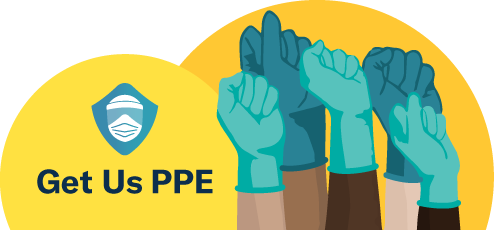
By Grace Jin and Mai Lynn Miller Nguyen
Volunteers are the engine of GetUsPPE, from the founding physicians to those contributing their commitment and skills at every level. As Asian Pacific American Heritage Month comes to a close, we celebrate some of our many volunteers of Asian descent, as well as all Asian Americans/Pacific Islanders (AAPI) on the frontlines of the fight against COVID-19.
This heritage month arrives at a moment when Asian Americans face a rising tide of xenophobia and scapegoating, with more than 1,700 incidents of harassment submitted to the Stop AAPI Hate reporting center since mid-March. As Asian Americans are being unjustly blamed for the virus, the irony is that many are among those being applauded today as heroes—as part of the healthcare workforce. According to the Washington Post, Asian Americans make up 6 percent of the population, but 18 percent of U.S. doctors and 10 percent of nurse practitioners. Yet as GetUsPPE co-founder Esther Choo says in the article, “It shouldn’t matter if you’re a front-line worker. Every time something like this happens, there’s this wave of, ‘But we’re so good, and we don’t deserve this.’ No, you don’t deserve this because you’re human.”
Numerous AAPI community groups have mobilized to donate, procure, or deliver PPE. A Vietnamese-American-owned nail salon in Alabama donated 134,000 gloves and 23,000 masks to a local hospital. Fashion designers, including Prabal Gurung, are making and donating masks. A teenager in Texas who donated 11,000 masks to a local hospital said she wanted “to show that Asian Americans are with health workers and we want to unite.” A Chinese-American group gave PPE to Jewish groups for their solidarity in standing against anti-Asian hate.
Grassroots efforts are making an incredible impact on the PPE shortage and beyond. We applaud our many volunteers and coalition members who are putting their time, brainpower, and energy towards this critical cause. Our spotlight today features four inspiring AAPI volunteers: Jacqueline Chan, Sunny Mui, Angela Cho, and Shikha Gupta. We sent them the questions below to get their stories about why they volunteered, how they’re fighting COVID-19, and their experience right now as a member of the AAPI community.
Jacqueline Chan
As Public Health and Health Equity Team Lead, Jacqueline provides leadership and guidance for public health safety considerations to the logistics team and also leads equity initiatives to address disparities in accessing PPE.
Why did you join Get Us PPE?
I joined GetUsPPE in order to make a difference. Since I have a background in infectious diseases, health equity, and community mobilization, I wanted to help in any way I can.
How are you celebrating Asian Pacific American Heritage Month?
I’m part of a working group within my current organization, United Way Bay Area, to organize a series of events to celebrate AAPI culture through cooking demos and meditation sessions and raise awareness of the history (and current state) of racism against AAPI communities through a documentary series and discussion group.
What are some of the ways that COVID-19 is affecting AAPI communities?
There are many immigrant AAPI communities that are experiencing compounding effects of health inequities, particularly among families living below the federal poverty line or those who are from refugee families. This leads to increased risk of exposure if they are working in low-wage essential worker jobs or front line healthcare worker jobs. In addition, AAPI individuals are experiencing racism due to the misconception that COVID-19 can be blamed on Asian communities.
How are Asian American/Pacific Islanders engaged in the fight against COVID-19?
AAPI communities have strong community connections and are helping each other the best they can on the ground. Some AAPI community-based centers and nonprofits are mobilizing to meet the needs of their communities, such as through food deliveries or creating social connectivity especially for older adults living alone. Many healthcare workers are also AAPI and fighting COVID-19 in the day-to-day front line battle.
Asian Americans have been some of the earliest adopters of wearing masks, which are key for slowing the spread. Why do you think that is?
I believe it is because Asian countries and communities have had experience with past large respiratory virus outbreaks and they are aware of the adverse effects of air pollution and take precautionary measures such as wearing a mask. This article summarizes the larger context.
Sunny Mui
Sunny is a frontend developer who helped with the early buildout of GetUsPPE.org. He continues to keep the website updated and usable, coordinating with other teams to support the overall organizational mission.
Why did you join Get Us PPE?
In the uncertain early days of the pandemic, some of my healthcare worker friends began posting about the lack of PPE. I was itching to do something about it–with extra time at home, I started looking for projects to help with related to COVID-19 through Code for America, a civic tech volunteer organization I’m also a part of.
I was considering making a map of hospitals people could donate to in San Jose, until I found an organization already working on the problem, GetUsPPE. After I got into the inter-team Slack, I started answering questions with whatever knowledge I had on WordPress and frontend development, working on almost every page on the GetUsPPE site as it was spinning up. I’ve stuck around since, because I feel like we’re making a real impact on the crisis.
How is COVID-19 affecting AAPI communities?
I live in the San Francisco Bay Area, which has a huge Asian/Pacific Islander community. Earlier in the pandemic, there was a kind of paranoia around going to Asian restaurants and businesses. Nowadays, I’m hearing reports of increased anti-Asian American sentiment, which the organization A3PCON’s STOP AAPI Hate initiative is working on tracking. On a personal level, my aunt is a nurse and several of my friends work in healthcare, so they’re right on the frontlines.
How are Asian American/Pacific Islanders engaged in the fight against COVID-19?
One of the civic tech projects I’ve been working on has been focused on offering disaster response information to non-English speaking communities, such as the large Vietnamese community in San Jose. Much of the official disaster information that gets released is inaccessible to non-English speakers, especially in the older generations.
Asian Americans have been some of the earliest adopters of wearing masks, which are key for slowing the spread. Why do you think that is?
I think the first SARS epidemic had a big impact on mask wearing. I’m Chinese American, and Chinese culture has a tendency for collectivism which encourages compliance with public health initiatives. I’d imagine it’s similar for many other Asian cultures.
What’s a fun fact about you?
I wrote a 11,000 word long article full of financial analysis about one of my favorite shows, The Expanse, on my personal comics blog Destroy the Comics. The article was retweeted by the show’s writers and apparently is being used as a case study in a business class.
Angela Cho
Angela leads operations for PPEforNYC, one of GetUsPPE’s coalition partners. Her work includes tracking and updating their database, communicating with front-line workers in need of PPE, and working with partners to coordinate donations and dropoffs to places of immediate need each day.
What impact is PPEforNYC having?
Many people said our website makes it super easy for New Yorkers to know how to help our front-line workers in a clear, straightforward way—either through donation of supplies, donation of dollars, or by volunteering their time. We wanted our site to be the airport for anyone who wanted to help but didn’t know how.
We also maintain a local database of needs across NYC (updated almost every day) and actively share that data with our partners on the ground. It’s not a perfect system by any means, but we try to get that one piece of the puzzle right so we can be a dependable resource for those groups gathering and distributing donations. We make it a point to be connectors with data that’s as clean as possible, to help as many other PPE groups we can.
Why did you join GetUsPPE?
You guys are the best! Really. You connect most PPE grassroots groups together under one organized Slack umbrella, which is exactly what I’ve been looking for and failing to do alone. We need to work together in this and GetUsPPE helps us do that. If we don’t, we could be at risk of inadvertently giving too much to one facility and not having any left for another who could be facing a sudden shortage that day. There are many patterns we can track better if we work together. There’s great energy and appreciation too—the positive, like-minded community helps keep me going.
Also, burnout is real! Partnerships help enormously with that. There are parts of the process we at PPEforNYC are not good at. For example, we’re not supply experts. Nor do we fundraise or procure PPE. For that, we work with our partners like PPENow and DonatePPE. Collaboration with these groups was made possible through GetUsPPE. We’re not about to become supply experts overnight. But we know our swim lanes: it’s in marketing and back-end processes of gathering needs data, organizing it, and connecting people together. We look forward to the day when we won’t be needed anymore and we can close down our site.
What’s a fun fact about you?
I led a student movement to start the first Asian American Studies Program in Syracuse University. I was with a group of three incredible Asian American women who broke history there…12 years ago!
How is Covid-19 affecting AAPI communities?
I don’t know any stats on the anti-Asian hate incidents, but I can speak from personal experience. I was in Brooklyn the other day, waiting outside a grocery store. A man standing near me kept staring at me… and said, “Asian.” This was in Brooklyn, one of the most diverse places we know! I remember holding my breath in shock, like, is this guy going to attack me? I had a flashback to a YouTube clip I saw of a guy who kicked an Asian woman in the face recently. I froze… and got myself to walk away. I felt more fear then and now than I ever have living in NYC as an Asian. It’s a tiny seed of fear right now, but growing day by day with what I’m hearing in the news. Let’s hope I’m overreacting.
How are Asian American/Pacific Islanders engaged in the fight against Covid-19?
I see a number of Asian Americans who have connections with manufacturers abroad stepping up to help where they can. And our team here who built the PPEforNYC website, our database, etc., are all Asian American (there are three of us). Similar to others, we started PPEforNYC because we saw a need for it, and knew our marketing skills (we’re part of Function Labs at NYC) could help somehow. There are plenty of people of other ethnicities and cultures stepping up too — helping where they can. It’s been beautiful to see.
Asian Americans have been some of the earliest adopters of wearing masks, which are key for slowing the spread. Why do you think that is?
When most of the U.S. weren’t wearing masks while COVID was spreading, our family friends in South Korea kept messaging that we need to be wearing masks. They couldn’t believe we weren’t wearing them. But it wasn’t normalized here like it is there. We were told NOT to wear them, so people followed that directive.
Just like with the COVID tests that everyone was strongly encouraged NOT to take unless we had a fever — understandably, now people will hesitate a bit when doing both. Also, it’s so new to all of us. It’ll take time to adjust.
People follow the norm wherever they are. But in the U.S. the ‘norm’ lately hasn’t been clear. It’s been us vs. them, left vs. right. People are judged for wearing masks, and people are judged for not wearing masks. There’s a lot of judgment in our country — and an overwhelming amount of diversity that most Americans don’t realize they’re not embracing.
Shikha Gupta
Shikha wears many hats for GetUsPPE. She is the Director of Marketing & Communications, Director of Partnerships, and Vice President of the executive board. As a doctor, she is part of an incredible group of trained medical professionals who bring their insights from the field to GetUsPPE.
What impact does your role have on the organization?
I see my role as supporting the incredible talent in our volunteer pool. As much as possible, I try to remove obstacles blocking our teams from making progress and to work on making connections and developing partnerships that will allow our volunteers to get things done more effectively, efficiently, and equitably.
Why did you join Get Us PPE?
I originally started a similar organization with my brother and some of our friends. We thought it was a cool opportunity to combine my medical background and his tech background on a shared project. When we realized how many grassroots groups were simultaneously conducting projects that were so similar, we joined forces with GetUsPPE within the first week of its existence. My ultimate goal has always been to get as much PPE as possible to the people who need it most; it didn’t matter to me whose organization led the charge!
What’s a fun fact about yourself outside of Get Us PPE?
My fiance and I were planning to get married in October of this year, but because of COVID, we’re postponing our celebration until next October. It’ll be a big, colorful Indian celebration and a ton of fun for both of our families and all our friends. Planning it during quarantine has definitely been a bright spot and a reminder of amazing things to come!
How is COVID-19 affecting AAPI communities?
COVID-19 has hit AAPI communities in a number of non-medical ways. The first is the early and continued signs of discrimination against Asian Americans as the pandemic spread from Asia through Europe to the United States. We need to do more to educate the general public about COVID’s origins as we discover more about the virus, and we need to directly confront and put an end to anti-Asian sentiments and attacks. Another is the high level of representation of AAPI healthcare providers and essential workers throughout the healthcare system, the cumulative effect and stress of serving as frontline workers while battling discrimination is an enormous burden. We need to ensure that all frontline workers have access to the mental health resources they need as the COVID pandemic persists, paying particular attention to AAPI communities.
Asian Americans have been some of the earliest adopters of wearing masks, which are key for slowing the spread. Why do you think that is?
I think there’s a cultural acceptance in many Asian communities around mask-wearing that isn’t yet prevalent in the rest of American society. My hope is that rather than stigmatizing mask-wearing, the COVID crisis will highlight the importance of mask-wearing and create a cultural shift that makes it a normal part of everyday life. We’re starting to see that shift now, and I hope that both retailers and celebrities/influencers continue to destigmatize mask-wearing by making masks readily available and the norm for all Americans in the same way that it’s been normalized in many Asian countries.




